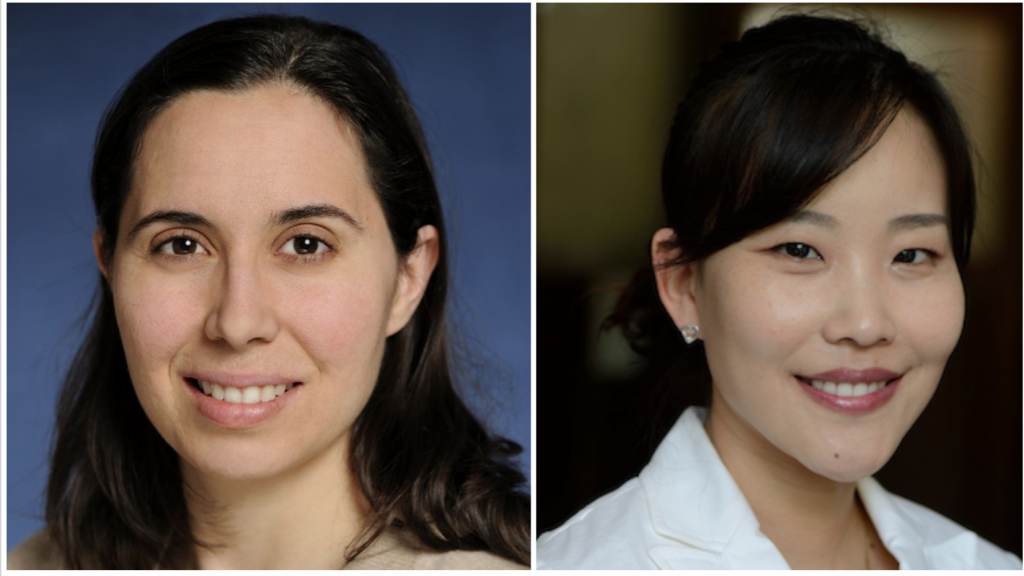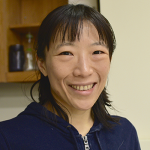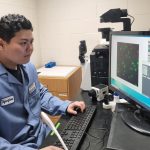Soojung Claire Hur receives Hartwell Individual Biomedical Research Award

Soojung Claire Hur, the Clare Boothe Luce Assistant Professor of Mechanical Engineering, was selected by The Hartwell Foundation to receive a 2019 Hartwell Individual Biomedical Research Award. The award helps researchers pursue innovative, early-stage biomedical research with the potential to benefit children of the United States.
Hur is one of 12 recipients, representing 11 U.S. academic institutions, to have received the award. Hartwell Investigators receive $300,000 in direct cost over three years to pursue highly novel, technology driven research projects that cannot be completed through traditional funding mechanisms.
With the award, Hur will pioneer development of a microfluidic system for delivering personalized gene therapy to treat pediatric cancer patients.
Studies show that the nucleic acid RNA can suppress genes that have the potential to promote cancer. Thus, RNA-interference (RNAi), a powerful gene-silencing intervention, holds great promise as a life-saving treatment strategy for cancer. RNAi also presents advantages over traditional treatments such as chemotherapy and radiation, including the ability to directly affect just the cancer cells and avoid harm to healthy cells.
However, despite significant progress in targeting cancer, the use of RNAi for routine therapy is hindered because of degradation by enzymes in the blood, the potential for RNA to trigger recipient immune rejection, and cellular barriers that prevent access to molecular targets.
To advance RNAi therapy as a viable option for personalized cancer treatment, an effective and safe delivery system must be developed. Hur believes that naturally occurring cell-derived, membrane vesicles called exosomes could solve this problem. Living cells normally communicate with each other through the release of exosomes, which transport specific proteins, DNA, RNA, and other effector molecules that when taken up by other cells may influence the behavior of the recipient cells.
Depending uniquely upon their origin and molecular composition, exosomes have an inherent ability to target certain tissues. Using exosomes that encapsulate RNAi could therefore provide an effective means to deliver cancer therapy.
Hur proposes to overcome the notoriously difficult challenges of exosome isolation by creating an innovative microfluidic system to readily purify exosomes from recipient blood and subsequently, uniformly load desired RNAi into the exosome interior at sufficient scale.
“A practical methodology to isolate and load exosomes with therapeutic molecules will enable strategically the development of exciting new applications in personalized precision medicine”, said Fred Dombrose, president of The Hartwell Foundation.
Hur hopes that discovering the key to successful RNAi delivery could reduce cancer treatment complications with life-long consequences for developing young children.
“If I am successful, the ability to readily produce exosomes with encapsulated RNAi will have the potential to benefit the many children affected by cancer who are likely to respond to gene therapy, and who may be able to avoid non-targeted treatments and their related side effects,” said Hur.
Hur was also quick to recognize those who supported her Hartwell proposal: senior mentors Dr. Donald Small and Michael E. Paulaitis, PhD, and research collaborators from the Johns Hopkins School of Medicine, Dr. Stacy Lorine Cooper and Dr. Gabriel Ghiaur.
Along with Hur, Rebecca Schulman, associate professor in the Department of Chemical and Biomolecular Engineering, received a 2019 Hartwell Investigator award. In addition to the two awards, Johns Hopkins will receive two $100,000 Hartwell Fellowships to support postdoctoral efforts to advance the mission of the Foundation.
Each year, the Hartwell Foundation invites its Top Ten Centers of Biomedical Research, and a limited number of other institutions, to participate in a competition for its Individual Biomedical Research Awards. A total of 15 Hopkins researchers have received Hartwell awards since 2006.
The Hartwell Foundation Individual Biomedical Research Award 2020 Competition is currently active and pre-proposals for Johns Hopkins’ internal nomination process will be accepted until June 2nd. Interested faculty can find more information about the opportunity and how to apply here.
This story was published by Catherine Graham and appears on the Department of Mechanical Engineering website.





